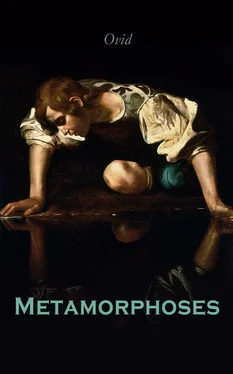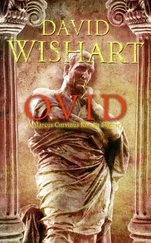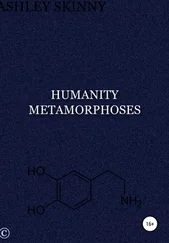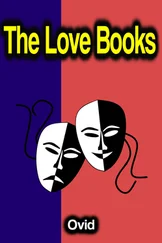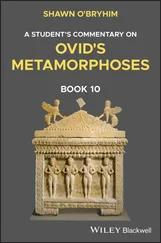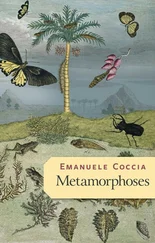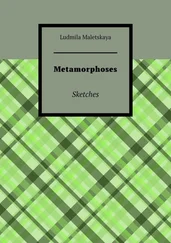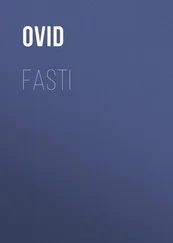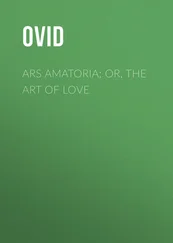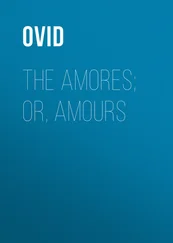Ovid - Metamorphoses
Здесь есть возможность читать онлайн «Ovid - Metamorphoses» — ознакомительный отрывок электронной книги совершенно бесплатно, а после прочтения отрывка купить полную версию. В некоторых случаях можно слушать аудио, скачать через торрент в формате fb2 и присутствует краткое содержание. Жанр: unrecognised, на английском языке. Описание произведения, (предисловие) а так же отзывы посетителей доступны на портале библиотеки ЛибКат.
- Название:Metamorphoses
- Автор:
- Жанр:
- Год:неизвестен
- ISBN:нет данных
- Рейтинг книги:3 / 5. Голосов: 1
-
Избранное:Добавить в избранное
- Отзывы:
-
Ваша оценка:
- 60
- 1
- 2
- 3
- 4
- 5
Metamorphoses: краткое содержание, описание и аннотация
Предлагаем к чтению аннотацию, описание, краткое содержание или предисловие (зависит от того, что написал сам автор книги «Metamorphoses»). Если вы не нашли необходимую информацию о книге — напишите в комментариях, мы постараемся отыскать её.
Metamorphoses — читать онлайн ознакомительный отрывок
Ниже представлен текст книги, разбитый по страницам. Система сохранения места последней прочитанной страницы, позволяет с удобством читать онлайн бесплатно книгу «Metamorphoses», без необходимости каждый раз заново искать на чём Вы остановились. Поставьте закладку, и сможете в любой момент перейти на страницу, на которой закончили чтение.
Интервал:
Закладка:
And as the disease of an incurable cancer is wont to spread in all directions, and to add the uninjured parts to the tainted; so, by degrees, did a deadly chill enter her breast, and stop the passages of life, and her respiration. She did not endeavor to speak; but if she had endeavored, she had no passage for her voice. Stone had now possession of her neck; her face was grown hard, and she sat, a bloodless statue. Nor was the stone white; her mind had stained it.
EXPLANATION.
Pausanias, in his Attica, somewhat varies this story, and says that the daughters of Cecrops, running mad, threw themselves from the top of a tower. It is very probable that on the introduction of the worship of Pallas, or Minerva, into Attica, these daughters of Cecrops may have hesitated to encourage the innovation, and the story was promulgated that the Goddess had in that manner punished their impiety. This seems the more likely, from the fact mentioned by Pausanias that Pandrosos, the third daughter of Cecrops, had, after her death, a temple built in honor of her, near that of Minerva, because she had continued faithful to that Goddess, and had not disobeyed her, as her sisters had done. The reputation and good fame of Herse and Aglauros had, however, been restored by the time of Herodotus, since he informs us that they both had their temples at Athens.
FABLE XIV.
Jupiter assumes the shape of a Bull, and carrying off Europa, swims with her on his back to the isle of Crete.
When the grandson of Atlas had inflicted this punishment upon her words and her profane disposition, he left the lands named after Pallas, and entered the skies with his waving wings. His father calls him on one side; and, not owning the cause of his love, he says, “My son, the trusty minister of my commands, banish delay, and swiftly descend with thy usual speed, and repair to the region which looks towards thy Constellation mother on the left side, (the natives call it Sidonis 90by name) and drive towards the sea-shore, the herd belonging to the king, which thou seest feeding afar upon the grass of the mountain.”
Thus he spoke; and already were the bullocks, driven from the mountain, making for the shore named, where the daughter of the great king, attended by Tyrian virgins, was wont to amuse herself. Majesty and love but ill accord, nor can they continue in the same abode. The father and the ruler of the Gods, whose right hand is armed with the three-forked flames, who shakes the world with his nod, laying aside the dignity of empire, assumes the appearance of a bull; and mixing with the oxen, he lows, and, in all his beauty, walks about upon the shooting grass. For his color is that of snow, which neither the soles of hard feet have trodden upon, nor the watery South wind melted. His neck swells with muscles; dewlaps hang from between his shoulders. His horns are small indeed, but such as you might maintain were made with the hand, and more transparent than a bright gem. There is nothing threatening in his forehead; nor is his eye formidable; his countenance expresses peace.
The daughter of Agenor is surprised that he is so beautiful, and that he threatens no attack; but although so gentle, she is at first afraid to touch him. By and by she approaches him, and holds out flowers to his white mouth. The lover rejoices, and till his hoped-for pleasure comes, he gives kisses to her hands; scarcely, oh, scarcely, does he defer the rest. And now he plays with her, and skips upon the green grass; and now he lays his snow-white side upon the yellow sand. And, her fear now removed by degrees, at one moment he gives his breast to be patted by the hand of the virgin; at another, his horns to be wreathed with new-made garlands. The virgin of royal birth even ventured to sit down upon the back of the bull, not knowing upon whom she was pressing. Then the God, by degrees moving from the land, and from the dry shore, places the fictitious hoofs of his feet in the waves near the brink. Then he goes still further, and carries his prize over the expanse of the midst of the ocean. She is affrighted, and, borne off, looks back on the shore she has left; and with her right hand she grasps his horn, while the other is placed on his back; her waving garments are ruffled by the breeze.
EXPLANATION.
This Fable depicts one of the most famous events in the ancient Mythology. As we have already remarked, it is supposed that there were several persons of the name of Zeus, or Jupiter; though there is great difficulty in assigning to each individual his own peculiar adventures. Vossius refers the adventure of Niobe, the daughter of Phoroneus, to Jupiter Apis, the king of Argos, who reigned about B.C. 1770; and that of Danaë to Jupiter Prœtus, who lived about 1350 years before the Christian era. It was Jupiter Tantalus, according to him, that carried off Ganymede; and it was Jupiter, the father of Hercules, that deceived Leda. He says that the subject of the present Fable was Jupiter Asterius, who reigned about B.C. 1400. Diodorus Siculus tells us that he was the son of Teutamus, who, having married the daughter of Creteus, went with some Pelasgians to settle in the island of Crete, of which he was the first king. We may then conclude, that Jupiter Asterius, having heard of the beauty of Europa, the daughter of Agenor, King of Tyre, fitted out a ship, for the purpose of carrying her off by force. This is the less improbable, as we learn from Herodotus, that the custom of carrying those away by force, who could not be obtained by fair means, was very common in these rude ages.
The ship in which Asterius made his voyage, had, very probably, the form of a bull for its figure-head; which, in time, occasioned those who related the adventure, to say, that Jupiter concealed himself under the shape of that animal, to carry off his mistress. Palæphatus and Tzetzes suggest, that the story took its rise from the name of the general of Asterius, who was called Taurus, which is also the Greek name for a bull. Bochart has an ingenious suggestion, based upon etymological grounds. He thinks that the twofold meaning of the word ‘Alpha,’ or ‘Ilpha,’ which, in the Phœnician dialect, meant either a ship or a bull, gave occasion to the fable; and that the Greeks, on reading the annals of the Phœnicians, by mistake, took the word in the latter sense.
Europa was honored as a Divinity after her death, and a festival was instituted in her memory, which Hesychius calls ‘Hellotia,’ from Ἑλλωτὶς, the name she received after her death.
1 Ægeon. ]—Ver. 10. Homer makes him to be the same with Briareus. According to another account, which Ovid here follows, he was a sea God, the son of Oceanus and Terra.
2 Doris. ]—Ver. 11. She was the daughter of Oceanus, the wife of Nereus, and the mother of the fifty Nereids.
3 Tethys. ]—Ver. 69. She was the daughter of Cœlus and Terra, and the wife of Oceanus. Her name is here used to signify the ocean itself.
4 Are carried round. ]—Ver. 70. Clarke thus renders this line,—“Add, too, that the heaven was whisked round with a continual rolling.”
5 Wild beasts. ]—Ver. 78. The signs of the Zodiac.
6 Hæmonian. ]—Ver. 81. Or Thessalian. He here alludes to the Thessalian Chiron, the Centaur, who, according to Ovid and other writers, was placed in the Zodiac as the Constellation Sagittarius: while others say that Crotus, or Croto, the son of Eupheme, the nurse of the Muses, was thus honored.
7 Through the five direct circles. ]—Ver. 129. There is some obscurity in this passage, arising from the mode of expression. Phœbus here counsels Phaëton what track to follow, and tells him to pursue his way by an oblique path, and not directly in the plane of the equator. This last is what he calls ‘directos via quinque per arcus.’ These five arcs, or circles, are the five parallel circles by which astronomers distinguish the heavens, namely, the two polar circles, the two tropics, and the equinoctial. The latter runs exactly in the middle, between the other two circles, so that the expression must be understood to mean, ‘pursue not your way directly through that circle which is the middlemost of the five, but observe the track that cuts it obliquely.’
Читать дальшеИнтервал:
Закладка:
Похожие книги на «Metamorphoses»
Представляем Вашему вниманию похожие книги на «Metamorphoses» списком для выбора. Мы отобрали схожую по названию и смыслу литературу в надежде предоставить читателям больше вариантов отыскать новые, интересные, ещё непрочитанные произведения.
Обсуждение, отзывы о книге «Metamorphoses» и просто собственные мнения читателей. Оставьте ваши комментарии, напишите, что Вы думаете о произведении, его смысле или главных героях. Укажите что конкретно понравилось, а что нет, и почему Вы так считаете.
